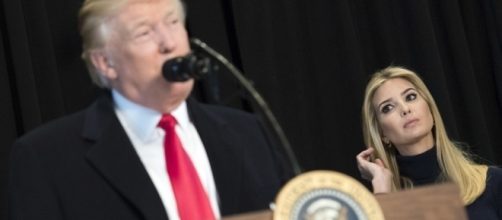Ivanka Trump, the 35-year-old daughter of President Donald Trump, is making a career change. The oldest daughter of the President and wife of Jared Kushner, Senior Advisor to the President, has accepted the role of Assistant to the President.
According to the White House, Ivanka Trump's position (as well as Kushner's) will remain unpaid for the duration of the POTUS's time in office. However, her newly assigned role elevates her work from an unpaid volunteer to that of an unpaid employee. The switch to an unpaid employee provides more balance in terms of adhering to all ethical standards set forth by the American government in situations such as this one.
Precedence for family in the White House
Presidential family members serving in a variety of high-profile, high-level roles isn't a new phenomenon. As then First Lady, Senator Hillary Clinton assumed an advisory role to President Bill Clinton and was afforded a West Wing office of her own. Robert Kennedy was selected as Attorney General by his brother, President John Kennedy. President John Adams created a role for his son, John Quincy Adams.
Approximately 20% of all United State presidents selected family members to serve in some capacity within their White House staff.
Legal or Illegal?
The Federal Anti-Nepotism Statute Section 3110 was enacted in 1967. However, this statute is only considered applicable when and/or if a family member assumes a paid position within the White House.
As Ivanka Trump has clearly indicated that she will not be accepting a salary, Section 3110 may be a moot issue.
Whether it is legal or not to include family members in positions such as Assistant to the President may not be the most pressing issue for Ivanka Trump and the POTUS. Nepotism is often a subject that has a strong basis in the appearance of impropriety over the actual legality of a situation. While such appointments may be simpatico with the law, public opinion may view the appointment of family members as a very uncomfortable and unseemly situation.
Ivanka trump to become official WhiteHouse employee working 4 @POTUS free
— Sophia (@surfermom77) March 29, 2017
Presidential Internship for 2024
pic.twitter.com/KcpLS3acxK

